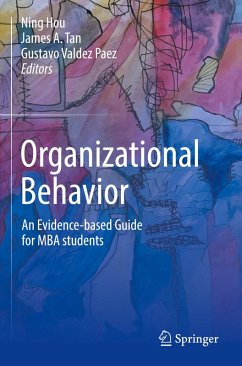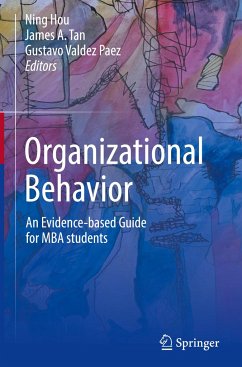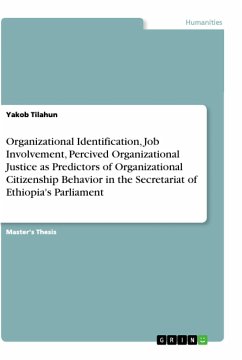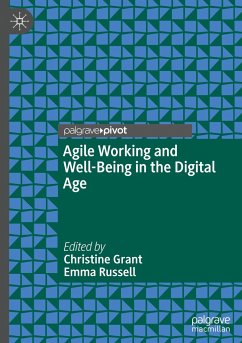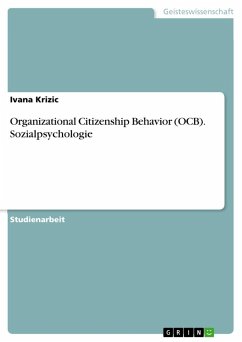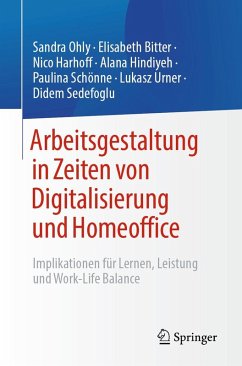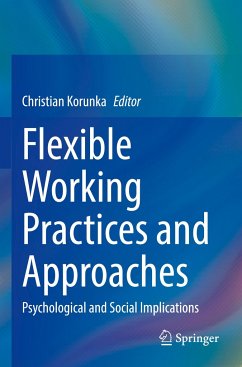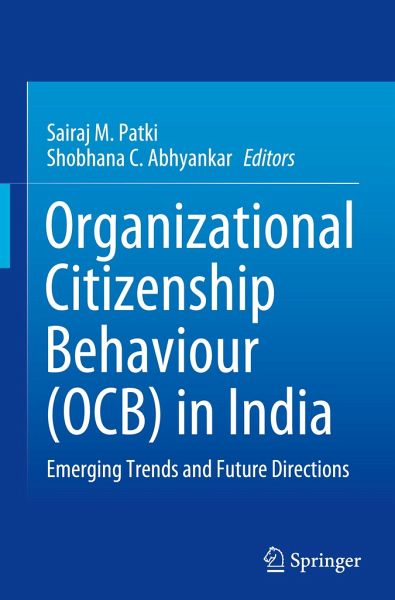
Organizational Citizenship Behaviour (OCB) in India
Emerging Trends and Future Directions
Herausgegeben: Patki, Sairaj M.; Abhyankar, Shobhana C.

PAYBACK Punkte
53 °P sammeln!
This book presents an exploration of Organizational Citizenship Behaviour (OCB), a concept with a long-standing history. It offers contemporary studies and discusses possible future directions for workplaces. The diverse range of topics this book covers makes it an engaging resource for anyone interested in OCB. The section on the pandemic covers citizenship acts performed by Indian organizations, OCB among teachers, and its significant work-related correlates in post-pandemic India. The second section covers contemporary correlates of OCB, such as work-life balance, compliance, counter-produc...
This book presents an exploration of Organizational Citizenship Behaviour (OCB), a concept with a long-standing history. It offers contemporary studies and discusses possible future directions for workplaces. The diverse range of topics this book covers makes it an engaging resource for anyone interested in OCB. The section on the pandemic covers citizenship acts performed by Indian organizations, OCB among teachers, and its significant work-related correlates in post-pandemic India. The second section covers contemporary correlates of OCB, such as work-life balance, compliance, counter-productive workplace behaviours (CWBs), and employee expectations. The future workplaces section discusses challenges to OCB, the measurement of OCB in evolving work environments, the role of machine learning (ML) in recruitment, and the importance of diversity management in ensuring OCB in inclusive workplaces. The book makes a valuable source of relevant issues on OCB while providing a broader perspective on future possibilities. It serves as reference material for students and researchers in fields like organizational behaviour, human resource management and development, and industrial psychology to study contemporary issues in OCB. The book also serves as a handy guide for managers looking to harness the benefits of citizenship behaviours to give their organizations an edge over competitors in the near future.






